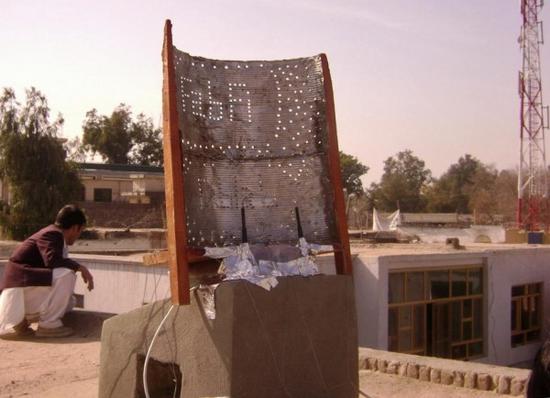
Thanks to some determined efforts from MIT’s Bits and Atoms lab, the Afghani locals are now better versed with internet and all. The volunteers made locals to use locally found trash like pieces of board, plastic tubs, wire, and cans to make a wireless network. Dubbed as FabFi, the project now includes 25 live nodes (reflectors) that offer a stable connection to Jalalabad’s residents. More reflectors and routers are being added as the MIT crew named Jalalabad Fab Lab ships routers from the outside.
As Free Range International puts it:
The boys at the Jalalabad Fab Lab came up with their own design to meet the growing demand created by the International Fab surge last September. As usual, all surge participants who came from the US, South Africa, Iceland and England paid their own way. Somebody needs to sponsor these people… For those of you who are suckers for numbers, the reflector links up just shy of -71dBm at about 1km, giving it a gain of somewhere between 5 and 6dBi. With a little tweaking and a true parabolic shape, it could easily be as powerful as the small FabFi pictured above (which is roughly 8-10dBi depending on materials).

